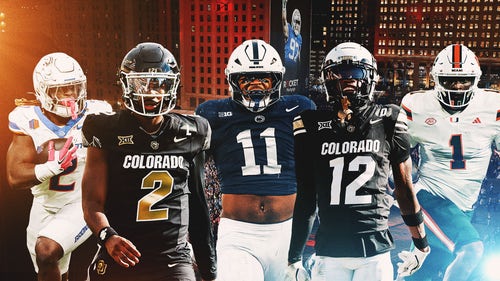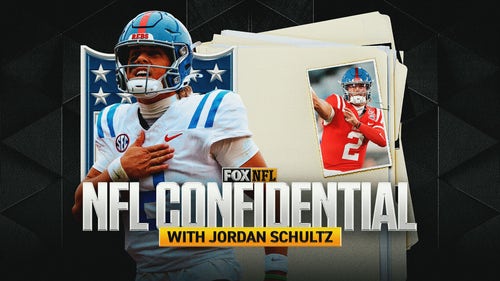
Thanksgiving Day's biggest plays
There's always a lot to be thankful for on Thanksgiving Day, but let's add both early games to the list, which turned out to be pretty good — especially the Saints-Cowboys game.
Let's take a look at a few of the key moments:
1. New Orleans at Dallas
THE SITUATION: Two Dallas challenges taken within 30 seconds in the first quarter.
THE PLAYS: The first play challenged by the Cowboys was a 28-yard pass by Saints quarterback Drew Brees to Devery Henderson at the 4-minute, 53-second mark, a completion that was ruled a touchdown. The Cowboys challenged that he was down by contact at the 6-yard line. The play was reversed.
The second challenge came 30 seconds later when Dallas quarterback Jon Kitna completed a 6-yard pass to Miles Austin, who fumbled the ball. The Cowboys challenged that Austin was down before he fumbled. The play was reversed.
MY TAKE: NFL on FOX analyst Troy Aikman asked a legitimate question during FOX's broadcast after the second Cowboys reversal — should a coach get an unlimited number of challenges as long as he is correct on each of his previous challenges?
The rule now is a coach gets a third challenge only if he wins his first two. I feel that Aikman’s idea is something the NFL should consider, though it might be best to stop short of allowing unlimited challenges
The biggest argument against unlimited challenges would be a possible increase in the number of challenges that would further affect the flow of the game. Teams also might end up challenging plays that have minimal impact, just because they know will get an additional challenges.
I don't see this happening simply because of the rise in the number of challenges in 2010. This is a trend that will raise concern for the competition committee and I doubt they will do anything that will result in more challenges. However, it might be considered further down the road.
2. New Orleans at Dallas
THE SITUATION: The Cowboys were punting on a fourth and 4 from the New Orleans 35-yard line with 10:57 left in the game.
THE PLAY: Cowboys punter Mat McBriar fumbled the snap and kicked the ball off the ground. The Saints' Tracy Porter received the kick and returned it to the New Orleans 16-yard line. A penalty was called on McBriar for illegal kicking of a loose ball. It was declined by the Saints.
MY TAKE: This was a very interesting play. It is illegal to intentionally kick a ball that is loose from a pass, kick or fumble. The penalty for intentionally kicking a loose ball is 10 yards. Normally, fouls by the kicking team carry over and are added on to the return.
My first reaction was that New Orleans would choose that option. However, it was not a kick. You only have the option to carry over the penalty yardage if it is a legal kick. This was merely kicking a backward pass and therefore it was not considered a kicking play. Referee Jerome Boger and his crew did a good job of sorting this out so that the Saints could decline the penalty and keep the ball.
3. New England at Detroit
THE SITUATION: New England led Detroit, 38-24, with just over three minutes to play. The Patriots scored and things started to get a little chippy.
THE PLAY: After BenJarvus Green-Ellis scored on a 1-yard run, Louis Delmas was called for unsportsmanlike conduct. On the extra-point try, the Lions got two more unsportsmanlike conduct penalties called on Ndamukong Suh and DeAndre Levy, one of which was accepted. Both penalties (from the touchdown and extra point) were assessed on the kickoff and the Patriots kicked off from the Lions' 40-yard line.
MY TAKE: There's nothing worse than when a game gets out of hand. This was a classic example of two teams that were ready to go home and enjoy their Thanksgiving dinners.
It almost seems that both teams succumbed to the frustrations of playing out a game that got to be one-sided. This is a challenge for the officials, who need to call fouls in order to keep control. You don't always get the guy that starts the fracas, but you have to take control at some point.
That's what referee Ron Winter and his crew did. Ron must have gotten very close to ejecting players, but he also must have felt that order was restored enough to be able to complete the rest of the game without further incident.
Winter then called roughing the passer on New England's Pat Chung on a play that occurred in the next series. He was not going to take any chances that might cause a further escalation of tempers.










